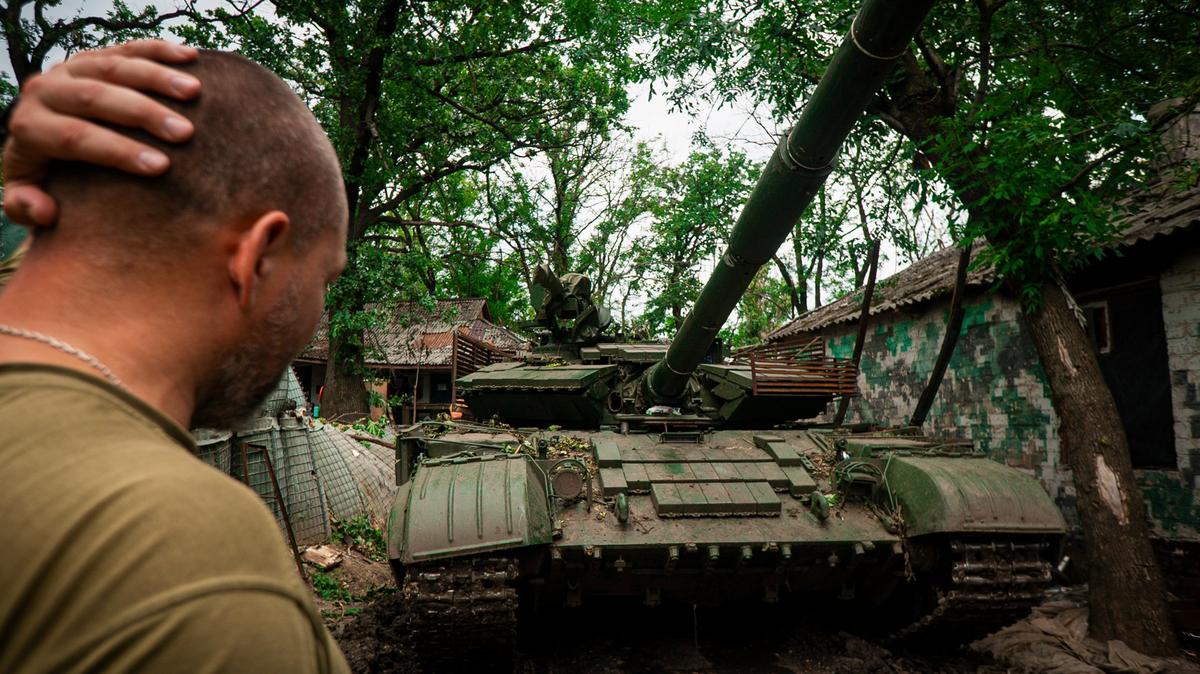The Ukrainian counter-offensive appears to be progressing at a slower pace than anticipated. Both Kyiv and Washington are attempting to manage expectations, and most Western nations have affirmed their ongoing support for Ukraine. However, the specifics of the future peace agreement will still be contingent upon the evolving situation on the front lines in the weeks to come.
Novaya-Europe spoke with Liana Fix, a Europe Fellow at the Council on Foreign Relations, about expectations regarding a Ukrainian counter-offensive and the potential changes to the international relations system and European security infrastructure resulting from the war.
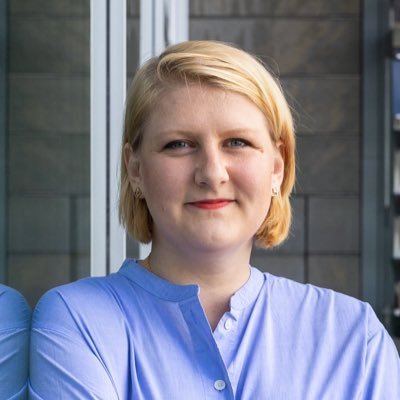
Dr Liana Fix
a Fellow for Europe at the Council on Foreign Relations, and the author of Germany’s Role in European Russia Policy
In March, you wrote that Ukraine’s supporters need to clearly define what the victory in this war must look like in order to be able to achieve it. How might that look like and what else is there to be done to bring an end to the hostilities?
There are different options for what an end to the war could look like. What has been surprising throughout the course of the war in the last year is that none of these options have been confirmed by Western allies and set to be on the same page with Ukraine.
The first option is the liberation of the entire territory of Ukraine, including Crimea. That is the preferred option for Ukraine, although there has always been some ambiguity from Ukraine’s side about whether Crimea should be liberated militarily or in a political process. From the Western side, there have always been concerns or fears of escalation, especially the nuclear kind.
The second option is going back to the 2014 line — parts of Eastern Ukraine and Crimea remain occupied by Russia. The problem with saying this is a good option is that the argument just repeats a pattern we’ve already seen in the past. We’ve already had 2014 and a renewed attack by Russia. So the risk is — the Russian leadership might just wait out for a couple of years and then try to attack once again.
The third option that was discussed in the earlier stages of the war is to have a line that allows Russia to keep even more territory. But that is an option which, at least for now, is not considered feasible anymore because Western leaders have very much agreed to Zelensky’s formula of a just peace in Ukraine.
So these are the three options that were under discussion. At the moment everything depends on how successful Ukraine’s counter-offensive will be.
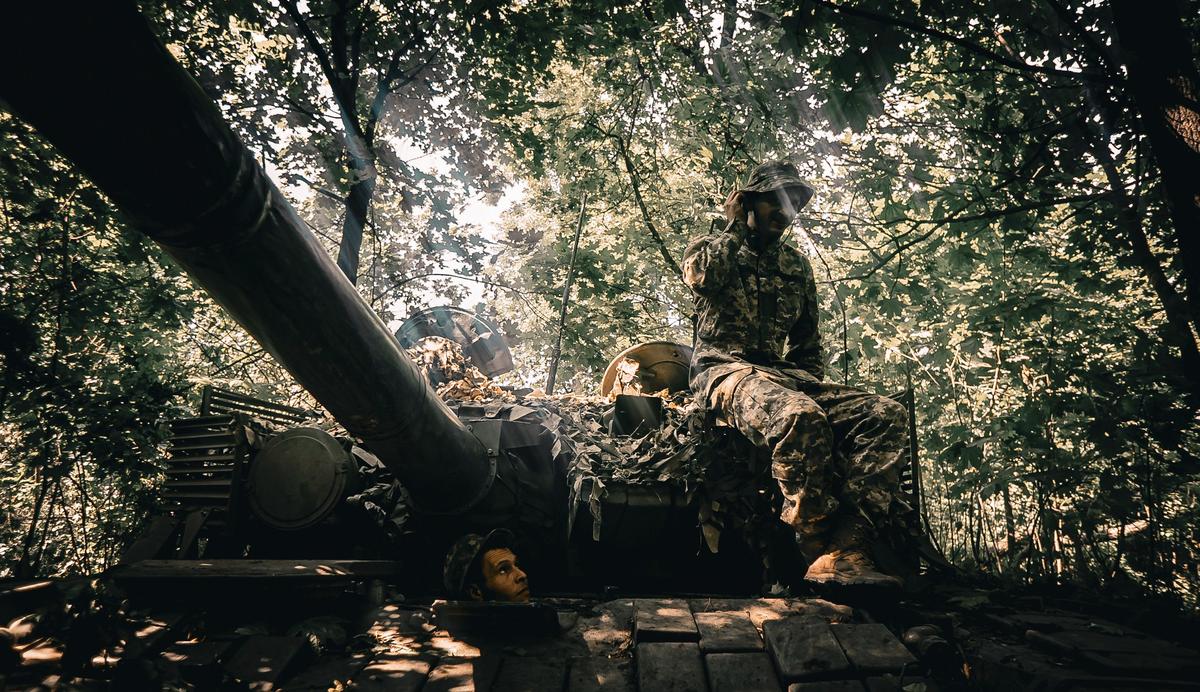
Members of Ukraine’s 59th Separate Motorized Infantry Brigade named after Yakiv Handziuk during repair work on a tank near a frontline in the Donetsk direction, eastern Ukraine, 02 July 2023. Photo by EPA-EFE/NIKOLETTA STOYANOVA
Ukraine’s counteroffensive is seen as a decisive moment in this war. If it doesn’t go well, how is that going to affect the West’s stance on a military victory? Or might that be a trigger for starting to suggest negotiations?
There was a lot of concern that there’s no plan B. We’ve also seen a lot of expectation management from the US and Ukrainian officials on how far this counteroffensive can proceed. On the upside, we have seen that many countries have committed to support Ukraine, which is meant to last after the counteroffensive, even if it’s not so successful. There will be no sudden rupture or no end of support for Ukraine.
The hope is that the military leverage that Ukraine might gain through the counteroffensive will translate into diplomatic leverage.
If the counteroffensive doesn’t go well, the question then is what should be the incentive to the Russian leadership to start negotiations in earnest if they have been successful at defending against Ukraine?
So the likelier scenario for negotiations is if Ukraine is successful. If Ukraine is not successful, we could see something of a ceasefire that is likely to only prolong the war. That might then turn into a waiting game — Russian leadership could decide to outwait the West until the next US presidential elections or until European countries get tired and then have another chance to go at Ukraine.
The leaked Pentagon documents show just how much the US is involved in this war. With all this information going public, is America going to change its approach?
It really has been an embarrassment for the US foreign policy establishment. Though I don’t think these leaks have changed much. Also, it’s now the past, since it’s such a dynamic situation. The leaks might just not be valid anymore.
But from a Ukrainian perspective, these leaks have confirmed that it makes sense to be relatively tight-lipped about what exactly they are doing and to keep the circle of information relatively small. That’s something that the US officials have been complaining about since the beginning of the war — they actually do not know so much about Ukrainian military planning. They are training Ukraine, they’re doing wargaming exercises with Ukraine but in the end, what exactly happens is not something the US knows in every detail.
With the amount of US involvement, some say that the situation is similar to the proxy wars of the 20th century when the US and the USSR were practically fighting over influence on the territory of a third country. What’s different now?
I don’t think this applies to the Ukraine war, even though some countries of the Global South would like to see it that way. There was certainly no interest from the US to have a war in Ukraine, not even a proxy war. It was also not started as a war over Ukraine. It was very much started as a war by the Russian leadership to get control over Ukraine. A proxy war would use the agency of Ukraine instead.
We have seen now that Ukraine has a lot of agency, it has successfully defended itself against the odds and estimations of many military observers worldwide.
That has been an important principle since the beginning of the war — not to talk about Ukraine without Ukraine, and to make sure that Ukraine is the primary actor.
Another principle is to undermine Russia’s narrative that Ukraine is not an independent state or a sovereign actor, and to undermine the whole narrative about world politics being dictated by great powers, and smaller powers having no say. This kind of worldview, which the Russian side proposes or puts forward, is something which is undermined by saying:
No, we let Ukraine decide what to do. Ukraine is at the table. Ukraine has a voice. This is not a proxy war. This is a war for Ukraine’s freedom.
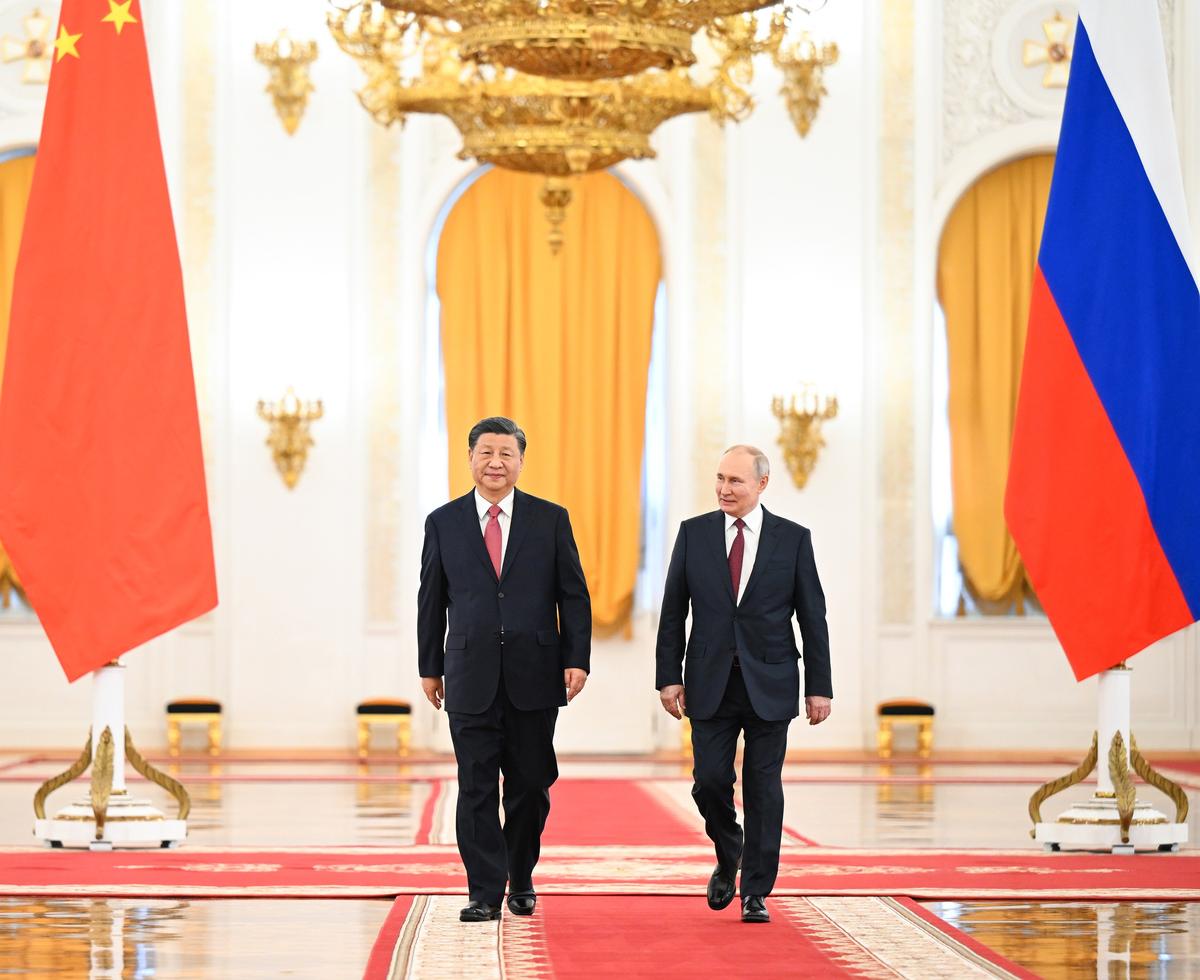
Russian President Vladimir Putin holds a welcome ceremony for Chinese President Xi Jinping at the St. George’s Hall at the Kremlin in Moscow, Russia, 21 March 2023. Photo by EPA-EFE/XINHUA / Xie Huanchi
China has been showing increased yet still covert support for Russia, sending, for instance, “hunting rifles” that could also be used as military weapons. In April you wrote that “a defeated Russia is not in China’s interest”. What effect might that have on the already tense US-China relationship and are we on the verge of an even larger conflict?
This assessment in the article co-written with my colleague Michael Kimmage still holds. What China wants is some kind of ceasefire, which would allow Russia not to be defeated and which would, at the same time, allow China to play the role of a global peacemaker. China would like to fashion itself as the reasonable voice, the neutral mediator outside of this politicised environment. In reality, this is very different.
If Russia were to lose in Ukraine, this would have a couple of consequences for China. First of all, it would raise the risk that Vladimir Putin’s regime would be challenged, which Beijing, as a fellow autocratic regime, would not want to see.
Secondly, Russia’s defeat would be a success for the United States and the West, which Beijing also doesn’t want to see, because the larger aim that both Russia and China share is to contest the US-led global order and to say,
Look, this order is not working and we have an alternative order that we propose, an order with Chinese or Russian-Chinese characteristics.
In the end, Russia’s defeat would also reduce the leverage that China has, because so far and especially in the last months, China has been successful at positioning itself as the only actor which can constrain Russia — or at least that’s the assumption. Suddenly China has entered European politics and European security in a way that we have never seen before.
So for China, Russia’s defeat would be the worst-case scenario, and a better case-scenario would be if China’s so-called Peace Plan ended up being the basis for negotiations.
Recently John Mearshimer’s 2015 lecture “Why is Ukraine the West’s fault” resurfaced and entered the debate on the reasons for Russia’s invasion of Ukraine. Why is this blame-shifting thinking once again becoming common among some academics and thinkers?
Mearshimer’s thinking reflects criticism of the US global hegemony. It is usually an argument that is made to criticise the United States rather than to support other countries. It is a dissatisfaction with the global order as it is right now. But this argument cannot explain why Russia decided to invade Ukraine.
We have to listen to what Russian leaders themselves say, because in the past there was always some kind of clouded language about Russia’s neighbourhood, a privileged sphere of influence. Now the Russian language and especially the language of Vladimir Putin has changed. He’s very clear and very open about his ambitions for Ukraine. It is an imperial project with which he wants to land in the history books. For him, it’s not about security.
Putin published this article about the historical unity of Ukraine and Russia before the invasion, and it was not taken seriously. So perhaps this should be a good moment to start taking these types of texts more seriously.
And if they say it’s an imperial project, to believe that it is indeed an imperial project.
To neglect what the aggressor has said himself about the motives and still to argue that it’s the West’s fault is undermining the agency of Ukraine, undermining and ignoring the developments in Russia, and it is certainly a one-sided perspective on the war.
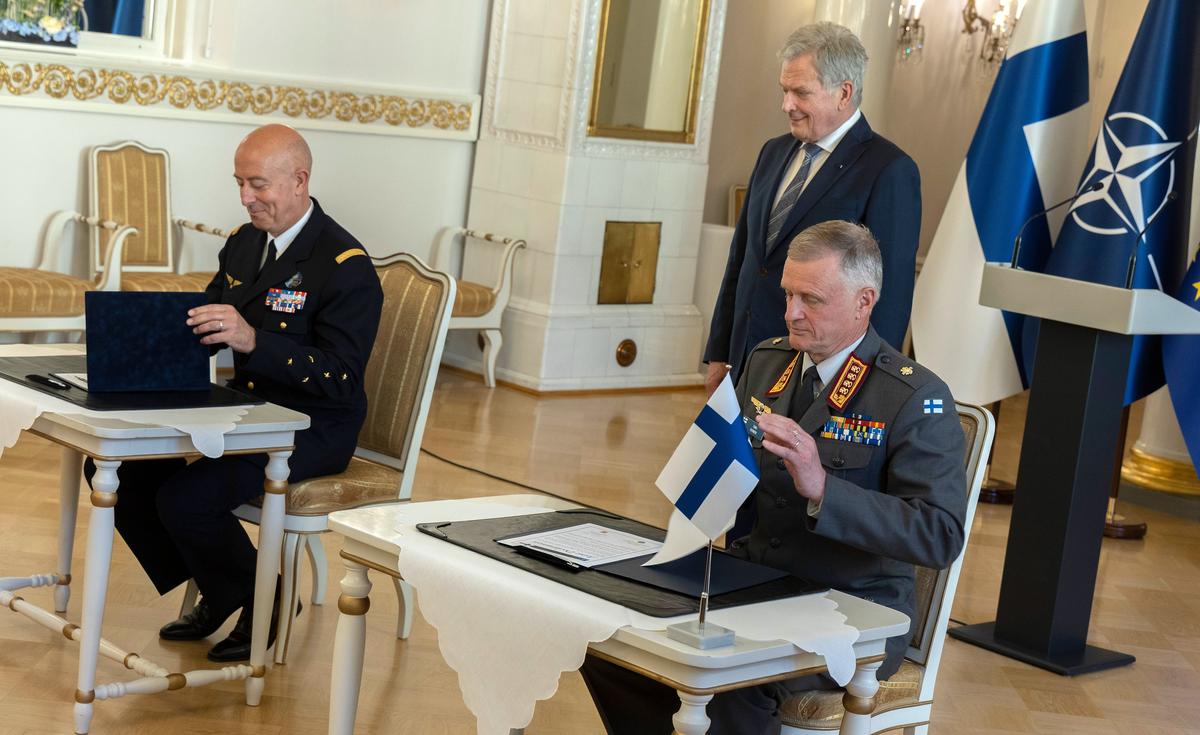
Finland’s President Sauli Niinisto (C) looks on as Commander of the Finnish Defenсe Forces, General Timo Kivinen (R) and NATO's Supreme Allied Commander Transformation General Philippe Lavigne (L) sign a joint statement on concluding the military accession process of Finland's NATO membership, at the Presidential Palace in Helsinki, Finland, 12 June 2023. Photo by EPA-EFE/Mauri Ratilainen
Western countries have already started increasing their military budgets and NATO’s gaining even more strength and accepting new members, like Finland. What does that lead to globally, in terms of international security? Might China try to form a similar NATO-type alliance around itself?
The greatest strength of the United States and the Western world is the alliance that they have because it is very different from the kind of autocratic ones that we see in other parts of the world. The deepening Russian-Chinese relationship is not the value-based, almost friendship-like relationship between European countries and the United States. These bonds are very important, we’ve seen since the beginning of the war what kind of leverage countries that work together can bring to the table as an alliance. The concept of having allies and friends is something that gives you an advantage in world politics and strengthens your position.
Whereas if you are a country like Russia or China, that is convinced of its own claim to hegemony in its region, you might be dealing with your partners as vessels rather than allies. These relationships will never be as strong as an alliance, which is based on a common kind of idea and a common value system.
This is why I don’t believe we will see this kind of alliance developing around Russia or China, because the relationships that both Russia and China have developed in the neighbourhoods have always been top-down. To some extent, of course, the US is ultimately the leader of the Western world, but it is not the same kind of coercive top-down relationship that Russia and China exert in their neighbourhoods.
Support independent journalism
Has the war reset and strengthened the Euro-Atlantic partnership? Are the US and the EU going to continue cooperating even further and what’s that going to look like?
We’ve definitely seen a strengthening in the security sphere: the increase of defence budgets, Finland joining NATO, Sweden possibly following suit, other countries that were neutral are reconsidering their positions. What we probably need to see more of in the future is the same kind of determination to stronger economic cooperation, to make the alliance not only this formidable security bloc but also a successful trading bloc.
We had some arguments between the United States and Europe about the Inflation Reduction Act, about protectionism, and this idea that Europe and the United States, other members of the alliance should mutually enhance the growth and should sort of collectively work on amplifying the economic growth. That prosperity is certainly something where we are not as far ahead as we are in the security area.
There’s been a lot of talk on how the United Nations is becoming increasingly obsolete. With Russia being a permanent member of the Security Council and the general lack of the UN’s power to promptly address crises, what’s going to happen to it after the war? Is there a chance to reform it?
The Security Council is the greatest challenge there because of the two countries, Russia and China, which are embarking on their own missions of great power competition. But what we’ve seen instead of the Security Council is that, for instance, the vote in the General Assembly in the UN has been quite helpful. These votes are one opportunity to demonstrate, for instance, to Russia and China, that even if many countries do not explicitly support Ukraine, they also do not explicitly support Russia’s point of view. That’s something which, at least in a normative way, helps to support Ukraine’s cause, even if the main decision-making body — the Security Council — is defunct at the moment, at least when it comes to the questions of peace and security.
The bigger question is, would we be in a better place if the United Nations did not exist? I don’t think we would. Even with all the difficulties that the UN has, it is still so much better to have this institution because it is also doing important work in other parts of the world which are not related to the war in Ukraine.
It is the question of reform. As long as reform of the United Nations can be blocked by the Security Council, it will forever be incredibly difficult. The only hope for a functioning Security Council is to wait until a different leadership arises in Russia. It’s an institution that has to wait for a better cooperative environment to emerge.
Let’s say the regime in Russia doesn’t fall and Putin’s still there. What might the EU’s strategy look like in interacting with Russia and preventing its further military aggression?
At the beginning of the war, there was this idea that this was just Putin’s war and that he had surprised his own population and his own leadership with it. But the longer the war continues, it becomes clearer that this war has sunk deeper into Russian society, has sunk deeper into Russian leadership. So right now, it’s very much considered Russia’s war.
The question really is how likely is it that after Putin, we will see in Russia a leader who is fundamentally different? If we look back to history, it took decades until from the dark times of Stalin someone like Gorbachev could emerge. There’s a realisation in Europe that this is not just a short-term episode with Russia. Even when the war is over, Russia will remain an adversary for Europe possibly for decades, it will stay tarnished by the legacy of this war. Putin’s successors might be slightly different but also uphold this terrible mistake that he has made.
For Europe, the policy towards Russia-of-the-future will be very much a policy of containing the negative effects, the sabotage that can come from Russia. The focus will be on containing a hostile and defeated Russia, and rebuilding Ukraine. The priorities have definitely changed. For so many decades, Russia-policy was always the priority in Europe. But now Ukraine-policy is the priority. And with Russia, the only option is to somehow try to contain its worst outlashes.
Join us in rebuilding Novaya Gazeta Europe
The Russian government has banned independent media. We were forced to leave our country in order to keep doing our job, telling our readers about what is going on Russia, Ukraine and Europe.
We will continue fighting against warfare and dictatorship. We believe that freedom of speech is the most efficient antidote against tyranny. Support us financially to help us fight for peace and freedom.
By clicking the Support button, you agree to the processing of your personal data.
To cancel a regular donation, please write to [email protected]
